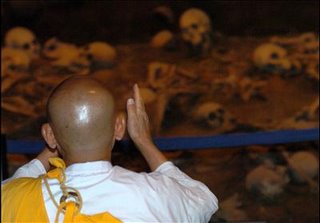Lesson on Unknown History

During my course preparing high school students to go to take an entrance exam, I was made aware of their anti-Japanese feelings during our goodbye lunch celebrations. I had to to a bit of digging to see what this was based on. Here is some background material.
War Lives On at Museum of the Macabre (Washington Post 2006)
HARBIN, China -- More than 200,000 Chinese filed through the remains of Japan's notorious Unit 731 here last year, visiting the ghosts of World War II. In exhibits mounted throughout the bleak headquarters building, they saw wrenching descriptions of biological warfare experiments carried out on thousands of Chinese prisoners from 1939 to 1945.
The phrase "Do not forget us" has been inscribed on the wall of one room, where visitors can see the names and photos of some of those who received botulism injections, were made to suffer frostbite or had their internal organs removed by Japanese military doctors.
Heeding those words, authorities have drawn up plans for a $62.5 million expansion of the museum, condemning a middle school and an apartment complex to make way for restoring the once top-secret facility, where researchers estimate 3,000 Chinese were killed and 300,000 sickened by the hideous wartime experiments. The aim, said curator Wang Peng, is to make the story of Japan's atrocities at Unit 731 known to an ever-wider audience.
"Our goal is to build it into a world-class war memorial and educate people all over the world," Wang said in an interview. "This is not just a Chinese concern. It is a concern of humanity."
The intensifying interest in abuses at Unit 731, on the plains of Manchuria about 650 miles northeast of Beijing, is part of a rising tide of Chinese resentment over Japan's conduct during its extended occupation of China. The resentment, long simmering in the population, has been stoked in the past several years by what Chinese officials and people contend is a refusal by Japanese leaders to acknowledge clearly what happened and seek forgiveness from the victims and their relatives.
The popular anti-Japanese sentiment, mirrored in government-controlled media, has become a key ingredient in an increasingly tense relationship between China and Japan. Although they remain valuable trading partners, Asia's two major powers gradually have slipped into the role of adversaries, with officials regularly trading accusations of bad faith and Japanese leaders explicitly calling China a security threat.

1 Comments:
Here are some links that I believe will be interested
Post a Comment
<< Home